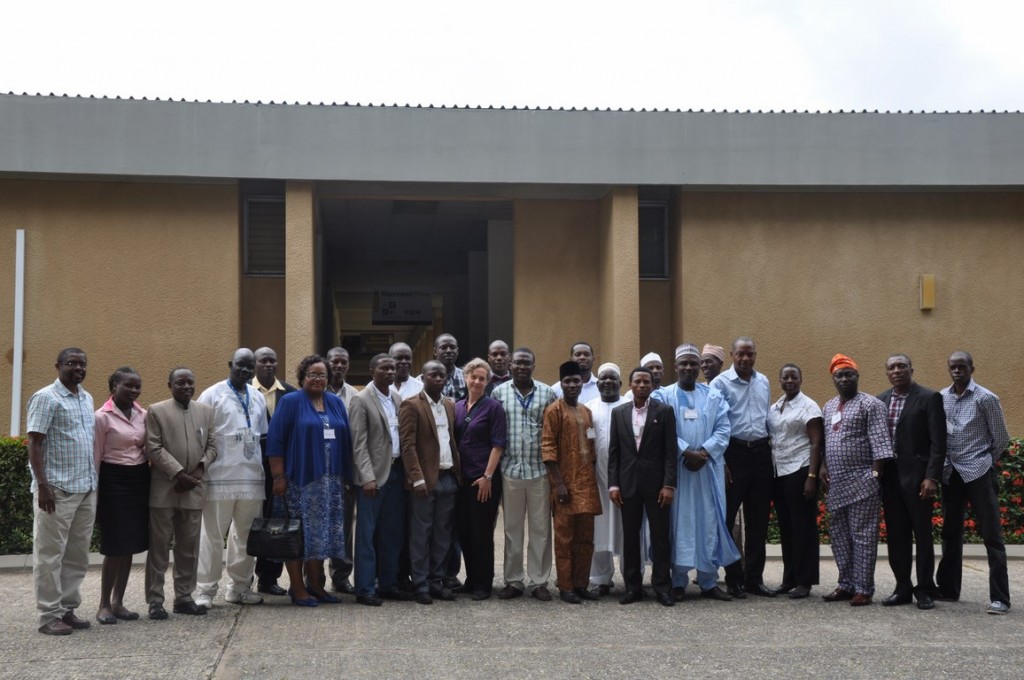The AgResults AflasafeTM team has successfully completed a 2-day training in Ibadan for its implementers. Welcoming participants, the AgResults Pilot Manager, Debo Akande, reiterated the project’s commitment to supporting and providing solutions to farmers for improving safety and increasing productivity of maize.
He described the training as a unique model to advance the biocontrol of aflatoxin to Nigerian farmers through the involvement of market players, the private sector, and other key stakeholders in maize value chain to ensure sustainability of aflasafeTM adoption.
The AgResults project seeks to promote the adoption of aflasafeTM – a biocontrol technology with a proven efficacy to reduce aflatoxin contamination in grains by as much as 90% – among smallholder maize farmers in Nigeria. The project currently works with 11 implementers from various small and micro-enterprises to disseminate the technology.
The focus of the training was to inform implementers of the project objectives and mode of operation, demonstrate method of aflasafeTM application, use of other aflatoxin management practices, maize agronomy, and business development opportunities with low-aflatoxin maize.
Mr Akande said that since over 70% of food in Nigeria was currently produced by smallholder farmers, implementers were expected to pass on this information and demonstrate it to 5,000 farming families in 2014. This would change them from subsistence farmers to becoming farmers inclined to agribusiness. He said, “We expect that 110 t of aflasafeTM will be applied on 11,000 ha of maize fields in 2014. AgResults will also provide incentives for this group of farmers to facilitate adoption of this biocontrol technology.’’
Dr Joseph Atehnkeng, Coordinator for Aflatoxin Control in West Africa; Dr Silvestro Meseka, IITA Maize Breeder; and Lawrence Kaptoge, Process Engineer AflasafeTM Manufacturing Plant, were among the key stakeholders that made presentations during the training. They stressed the importance of good management practices while stating that bad sanitation, poor management, and improper storage were linked to high levels of aflatoxin contamination.
The AgResults project is a multilateral initiative (G-20) managed by Deloitte Monitor. The Initiative receives support from the Governments of Australia, Canada, the UK, and USA, and the Bill & Melinda Gates Foundation. It aims to use results-based cash incentives – in the form of “pull mechanisms,” – to spur the adoption of innovation and technology to promote agricultural development and food security.


No Comments